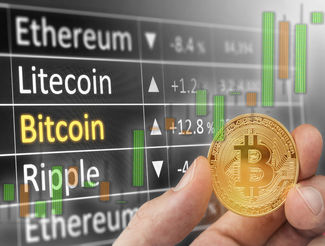In one of the ironies of the growing popularity of cryptocurrency, the technology that gained popularity because of its decentralized nature is now being traded largely on highly centralized exchanges. Bitcoin was designed to combat many of the negative aspects of government fiat currencies, one of the most important of those being centralization of issue. With a single centralized issuer, users of fiat currencies are at the mercy of the issuer, the central bank. They have to hope that the central bank will exercise restraint in its creation of money and won’t hyperinflate the money supply so that the currency’s value will drop to zero.
Bitcoin, on the other hand, has no centralized issuer or monetary authority. Its network is decentralized and its protocol limits the creation of bitcoins to only 21 million total units. There is no central bank to determine that more bitcoins are needed or to create additional monetary units. That decentralized nature sought to overcome the trust problem inherent with centralization. Yet Bitcoin trading, and indeed trading of most other cryptocurrencies, has now centered around cryptocurrency exchanges, centralized hubs where buyers and sellers trade their cryptocurrencies. And that, as we have seen on numerous occasions, has created a point of weakness in what otherwise is a strong and vibrant cryptocurrency market.
The centralized nature of exchanges makes them a target for hackers and thieves, with dozens of exchanges having been hacked over the past several years and millions of dollars worth of investor assets having been stolen. It started from the earliest days of Bitcoin’s popularity, with Mt. Gox famously falling victim to hackers, and it continues on today.
That vulnerability to hackers is why more and more cryptocurrency users are making the move to decentralized exchanges, to minimize their susceptibility to hacking. And it’s why Bitcoin investors should try to keep their assets clear from exchanges as far as possible. If you’ve decided to invest in a Bitcoin IRA or other cryptocurrency investment vehicle, you need to choose a trusted custodian and then ensure that your assets are held in cold storage, preferably in multiple offline wallets, to minimize the risk of theft or loss. Just as with investing in other assets, keeping your assets as decentralized as possible, or not having all your eggs in one basket, is a wise and prudent investment decision.
This article was originally posted on Coin IRA.





